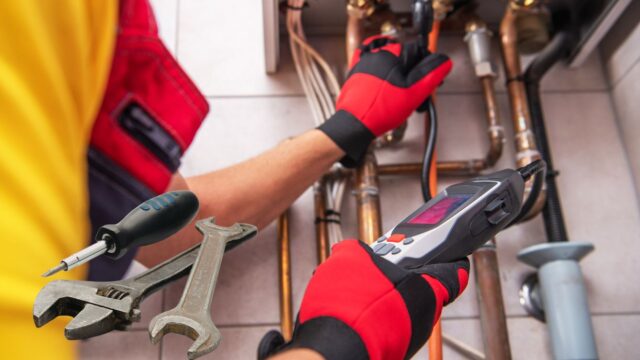Quick Summary Box: In summary, refrigerator compressors most often fail due to refrigerant problems, dirty coils, electrical surges, or simple wear-and-tear. Warning signs include unusual humming or clicking noises, a fridge that won’t cool, or the compressor running constantly. Regular maintenance – like cleaning condenser coils, avoiding electrical spikes, and fixing leaks promptly – can prevent most failures. When in doubt, contact a local appliance repair expert.
The refrigerator’s compressor is the engine that powers the cooling cycle by pumping refrigerant through the coils to keep food cold. When this compressor fails, the fridge can no longer maintain a stable cold temperature, quickly leading to spoilage and emergency repairs. In the Twin Cities area (Minneapolis–St. Paul) and surrounding Minnesota cities, homeowners depend on reliable compressor operation year-round. By understanding the most common compressor failure causes and watching for early warning signs, you can prevent breakdowns and know when to call a professional for refrigerator repair.
Common Causes of Compressor Failure
Refrigerant Leaks or Contamination:
The single most frequent cause of compressor failure is refrigerant issues. Leaks in the refrigerant line or an improper charge reduce cooling ability and cause the compressor to overheat. Contaminants (moisture or debris) in the refrigerant can also damage internal components.
Dirty Condenser Coils:
Dust or debris on the condenser coils makes it difficult to expel heat. A coated coil forces the compressor to work much harder, often leading to overheating and failure. Minneapolis homes with pets or heavy cooking should inspect coils regularly.
Electrical Problems & Power Surges:
Voltage spikes (from lightning or utility issues) and bad wiring can fry the compressor’s electrical parts. Frequent on/off cycling due to thermostat problems also stresses the compressor. Using a surge protector for your fridge and ensuring proper electrical grounding can help prevent this.
Overheating from Heavy Load:
Running an empty fridge for long periods or stuffing it with hot items forces the compressor to handle an unusual refrigerant mix, which can lead to failure. Likewise, blocked airflow (from poor placement or blocked vents) can cause overheating.
Age and Wear:
Like any motor, compressors wear out over time. Most compressors last about 8–12 years, and components will gradually degrade. Older refrigerators (especially 10+ years old) often face compressor failures simply due to age. Regular tune-ups can extend life, but replacement may be more practical for very old units.
Symptoms of a Failing Compressor
Watch for these common signs that the compressor may be going bad:
- Unusual Noises: A healthy compressor hums quietly. Buzzing, clicking, rattling or grinding sounds coming from the back of the fridge often indicate mechanical trouble. Any sudden loud noise during startup or shutdown is a red flag.
- Poor Cooling Performance: If the refrigerator and freezer no longer stay at the set temperatures, and food warms up faster than normal, the compressor isn’t pumping cold air effectively. This is one of the clearest symptoms of compressor trouble.
- Constant Running: A compressor that is failing may run continuously (cycling on and off rapidly or not at all) and never properly cool the fridge. This also drives up energy bills.
- Hot Compressor or Cabinet: Touching the compressor (or feeling excess heat around it) after it’s been running can indicate overheating. An excessively hot compressor is working too hard and may fail soon.
- Tripping Breaker or Electrical Issues: A failing compressor can draw too much current. If your fridge regularly trips its breaker, or if you notice flickering lights when it starts up, have the compressor checked immediately.
Preventive Maintenance Tips
- Clean Coils Regularly: Every 6 months, vacuum or brush the condenser coils (found under or behind the fridge) to remove dust and pet hair. This simple step keeps heat exchange efficient and takes strain off the compressor.
- Maintain Proper Ventilation: Ensure your fridge has at least a few inches of clearance from walls and that air vents are unobstructed. Good airflow prevents overheating.
- Protect from Power Surges: Use a heavy-duty surge protector or consider whole-house surge protection. This safeguards the compressor and other electronics from voltage spikes.
- Balance Fridge Load: Don’t overfill or underfill the fridge. A well-balanced load (with not too many hot items) helps refrigerant flow smoothly. Promptly remove expired food so vents aren’t blocked.
- Schedule Professional Check-ups: If you live in areas with hard usage or older appliances, have a technician inspect your refrigerator annually. Catching small compressor or refrigerant issues early can prevent full failures.
Repair or Replacement Considerations
If a compressor problem is diagnosed, consider the appliance’s age and repair costs. Replacing just the compressor can cost $300–$600 for parts (plus labor) on modern models. For a fridge older than 10–12 years, it may be more economical to replace the entire unit. In contrast, repairing a newer fridge usually makes sense to extend its life. Always get a professional assessment – a qualified technician will evaluate your specific model and advise whether repair or replacement is the better choice.
For expert help with stubborn compressor issues or any refrigerator trouble, contact Central Minnesota Appliance Repair. Our Minneapolis and St. Paul area technicians specialize in refrigerator repair, ensuring timely, reliable service when you need it most.
Internal Links Added (with anchors):
- Central Minnesota Appliance Repair – anchored as “appliance repair Minneapolis” linking to homepage【14†】
- Fridge Repair Service – anchored as “refrigerator repair service” linking to fridge repair service page【3†】
FAQs
What is the most common cause of refrigerator compressor failure?
The top causes are refrigerant leaks, dirty condenser coils, electrical surges, and natural wear-and-tear. Any of these can overwork the compressor and lead to failure.
What are the symptoms of a bad fridge compressor?
Common signs include unusual humming or clicking noises, the fridge not staying cold, very high energy bills, and a compressor that gets extremely hot or runs constantly. These indicate the compressor is struggling.
How long does a refrigerator compressor last?
On average, compressors last about 8–12 years with normal use. Proper maintenance (like clean coils and surge protection) can help reach the upper end of that range.
Can I reset my refrigerator’s compressor?
You can try a simple reset by unplugging the fridge or turning off its circuit breaker for 5–10 minutes, then powering it back on. This may clear some minor errors. However, if the compressor is failing, a reset won’t fix mechanical or refrigerant issues — you’ll need a technician.
Should I repair or replace the fridge if the compressor fails?
If the fridge is relatively new, repairing the compressor is often worthwhile. But for older refrigerators (10+ years), replacement can be more cost-effective. Assess repair costs vs. buying a new energy-efficient model, and consult a professional for advice.



